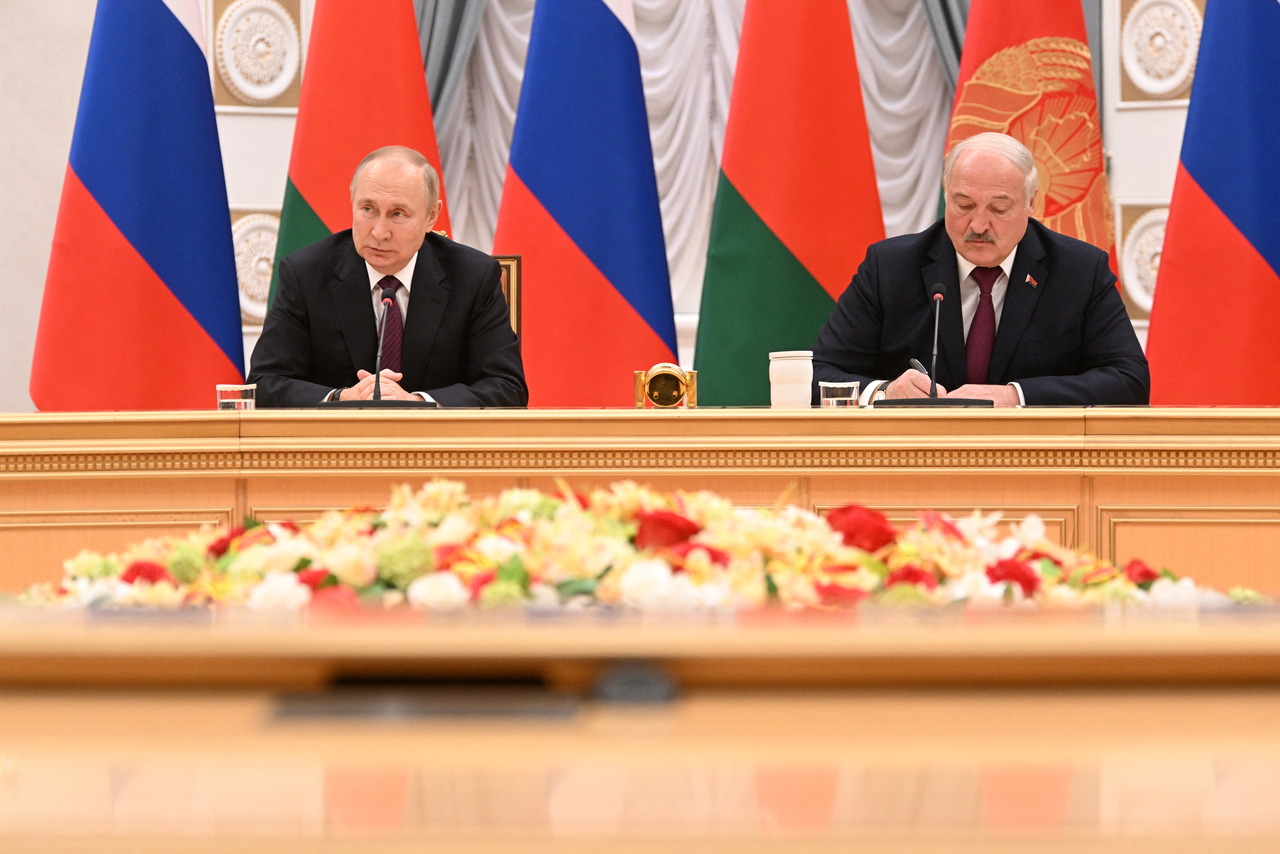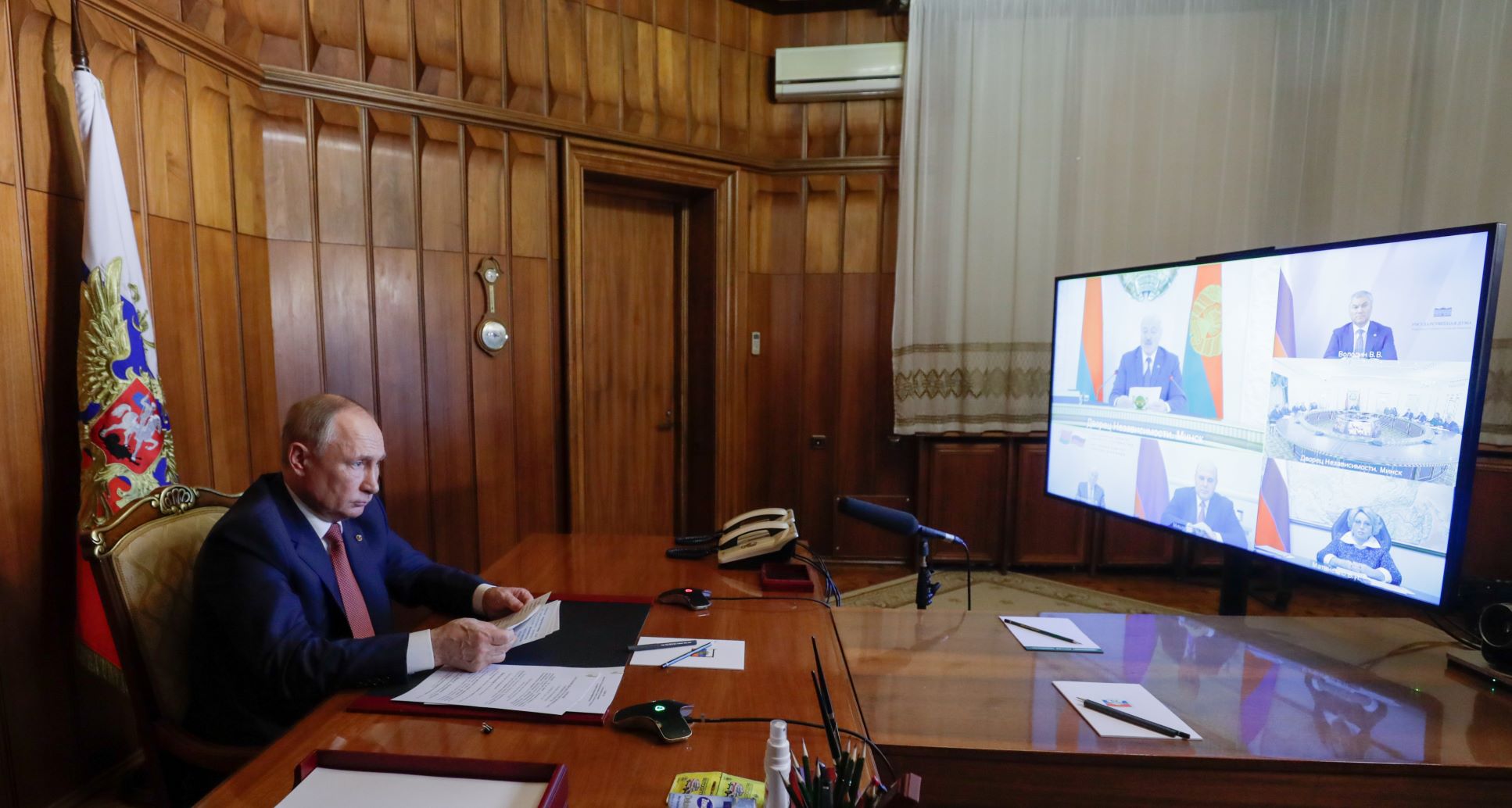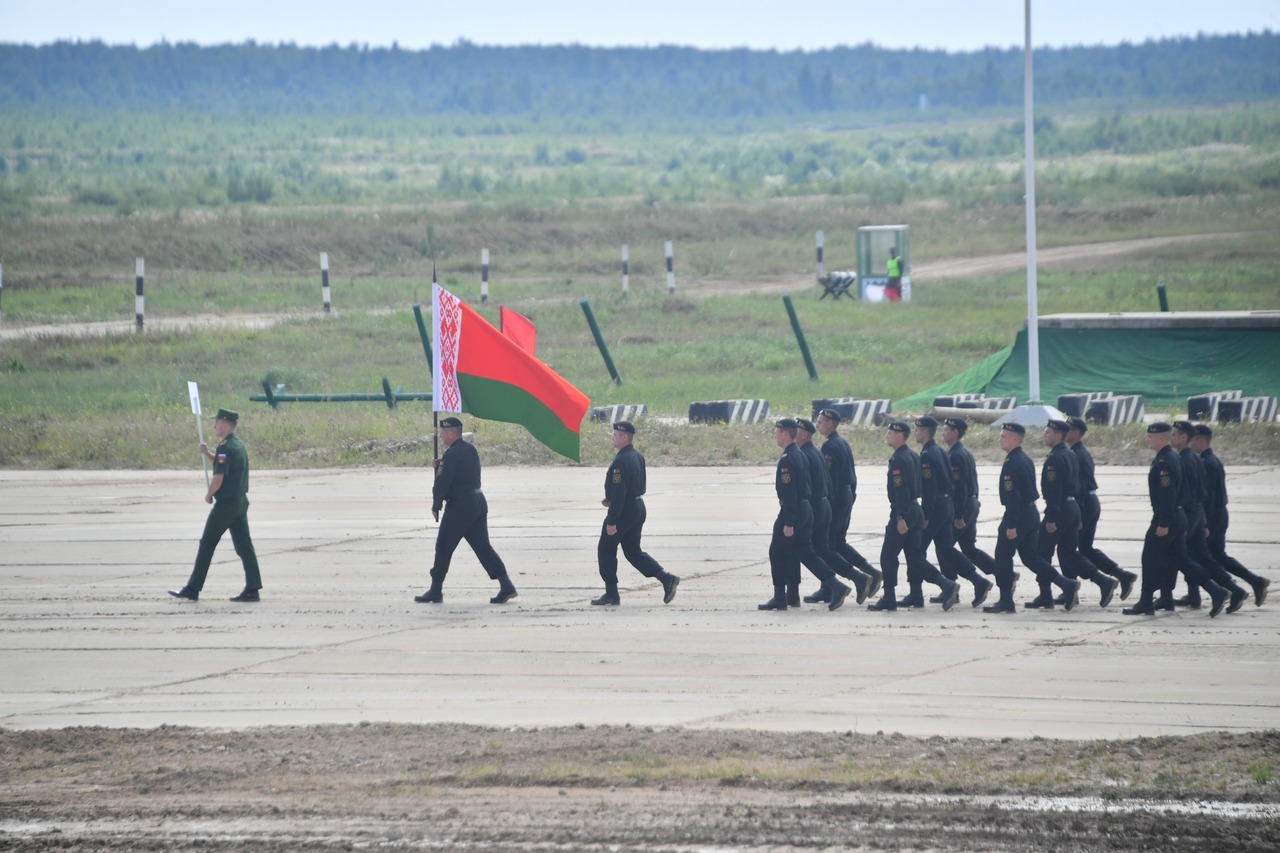Belarus And Russia Move to The Next Stage Of Integration
In December 2022, Belarus and Russia agreed to create a “common defence space” and further strengthen military cooperation. The talks also concerned new economic integration programmes, gas prices, and coordination of the foreign policies of both countries. The arrangements will lead to increased Russian control over Belarus, especially in the security sphere. This will have negative consequences, including for NATO’s Eastern Flank and for Ukraine, which fears another invasion from Belarusian territory.
 SPUTNIK / Reuters / Forum
SPUTNIK / Reuters / Forum
On 19 December 2022, Vladimir Putin paid his first visit to Minsk in three years and a session of the Union State Parliamentary Assembly was held in Moscow. Moreover, on that same day, consultations of foreign ministers and defence ministers were also held in the Belarusian capital. Then, on 26-27 December in Saint Petersburg, on the sidelines of the informal summit of the leaders of the CIS countries, negotiations continued on deepening economic integration and further integration programmes. The effect of these meetings was primarily the strengthening of cooperation in the area of security. They were also used for propaganda attacks against NATO.
Arrangements in the Area of Security
During Putin’s visit to Minsk, the creation of a “common defence space” between both countries was announced. In practice, this will mean even closer joint defence planning and activities, going beyond the existing arrangements, within the Regional Forces Group, military integration, and a permanent Russian military presence in Belarus, although this does not yet mean that the country’s armed forces will be placed under Russian command. Earlier, on 3 December, defence ministers Viktar Khrenin and Sergei Shoigu signed a protocol amending the 1997 agreement to jointly ensure regional security in the military sphere. The content of the amendments was not disclosed, but most likely they concern, among others, the creation and operation of joint Belarusian-Russian training and combat centres in Belarus for soldiers of both countries, which means the unification of training systems for most types of troops.
In addition, it was declared that the two countries would conduct more military exercises in Belarus than before. In 2023, there will be the previously planned Union Shield exercises, which will be the end of the two-year Regional Forces Group preparatory cycle. Moreover, on 21 December, Russian Defence Minister Shoigu announced the Zapad 2023 drills, part of which will also take place on Belarusian territory.
Alexander Lukashenka also announced the start of combat duty of the Iskander-M (NATO: SS-26 Stone) and S-400 (SA-10C) systems transferred to Belarus by Russia. What is more, Putin, confirmed that Russia will train Belarusian pilots of planes capable of carrying nuclear weapons. It also was announced that the defence industries of the two countries will expand cooperation, which will mean an increase in Russian orders and the start of production of Russian armaments in Belarus. In turn, during the meeting between Putin and the Secretary General of the Union State, Dmitry Mezentsev, which took place on 21 December, Mezentsev emphasised that Russia supports Belarus in developing railway troops and stated that cooperation between the secret services of both countries, including in the field of information activities, is strengthening to a greater extent than before.
Deepening Economic Integration
The authorities of both countries announced the preparation of further economic integration programmes for 2024-2026. According to Putin, Russia and Belarus have managed to implement more than 60% of the 28 economic integration programmes signed in November 2021. The aim of the new initiatives is to deepen cooperation in spheres such as industry and agriculture, transport, and nuclear energy. The result will probably be further unification of the economic law of both countries, including tax and customs law, and in practice it will mean the subordination of the Belarusian system to the Russian one. Both countries also set the price of natural gas for Belarus for the next three years. Although it has not been made public, the Belarusian side expressed satisfaction with the findings. In 2022, Belarus paid $128.50 for 1,000 m3 of gas (up to several times less than prices on European markets), so it can therefore be assumed that the price has remained at the same level or is lower, which is one of the elements of subsidising the Belarusian economy by Russia. The two countries also agreed on a rate for crude oil, which was not disclosed.
Consequences for Foreign Policy
During the meeting with Putin, Lukashenka declared that Belarus recognised the need to start discussions on a new security architecture in Europe, in line with Russian expectations of security guarantees and limiting the role of NATO. This indicates that after the amendment of the constitution in 2022 and the deletion of the point about Belarus’ pursuit of neutrality, its authorities also abandoned the concept of “Helsinki 2.0”, which they promoted until 2020. It assumed the creation of a new system of arms control and their limitation, which was to guarantee security for medium-sized countries most exposed to the negative consequences of disputes between superpowers, especially between the U.S. and Russia. By supporting Russia militarily and diplomatically in its war against Ukraine, Belarus has also moved away from promoting its role as a source of stability for the region, which was supposed to be an additional guarantee of security for it. In addition, the foreign ministers agreed, among others, a plan of joint actions of both countries in the international arena, which indicates that Belarus will coordinate its foreign policy with Russia to an even greater extent than before.
Russia and Belarus also declared the development of cultural, historical, and educational cooperation, and 2023 was declared the year of the Russian language in both countries. These declarations indicate that Russia’s goal is the progressive russification of Belarus, preventing the development of a separate identity and a distinct Belarusian cultural, historical, and social awareness for fear of events similar to the protests after the August 2020 presidential election. For Russia, it is also the implementation of its projects related to the concept of Russkiy mir ( “Russian world”), which assumes influencing the societies of neighbouring countries also through language, religion, and culture.
Conclusions and Perspectives
The December arrangements were not groundbreaking for Russian-Belarusian relations, but they confirmed the process of increasing Russian control over Belarus, accelerating since the rigged elections in 2020. This applies in particular to the military sphere because it this is this dimension of cooperation on which both countries focus. For the foreign and security policy of Belarus, this means a further limitation of the ability to conduct independent actions. Although new Belarusian international initiatives such as proposing a change in the current security architecture may be expected, these will in fact be proposals from Russia.
The decisions taken in Minsk indicate that Russia will have a permanent military presence in Belarus. This creates new challenges for Ukraine, which is fighting Russia, and means that it is necessary to increase the protection of the country’s northern border. The importance of protecting transport routes from NATO countries to Ukraine is also growing. The increasing number of military drills in Belarus will also pose security challenges for NATO’s Eastern Flank. Hence, it will be necessary to further adapt allied deterrence and defence to the military threats coming from Belarus, which may be the subject of the decisions of the Vilnius summit in July 2023.
If the actions of both countries are coordinated in the international arena, the importance of Belarus as an ally of Russia in its diplomatic activities towards so-called third countries, especially in Africa, the Middle East, and South America, and within international organisations such as the United Nations will grow. Russia will also continue to use Belarus as its proxy in its historical campaigns, accusing Western countries, including Poland, of promoting criminal ideologies, and in information warfare.
For Russia, Belarus will also be an important ally in the process of instrumentalising migration, which will cause additional challenges, mainly for the countries of NATO’s Eastern Flank and Ukraine. The deepening cooperation between the secret services of Russia and Belarus will lead to an increase in threats from both countries in the spheres of information, cyber, and critical infrastructure. This means that NATO countries should increase their defence capabilities in this regard and intensify international diplomatic activities so as to at least neutralise the Belarusian-Russian disinformation message.
The growing dependence on Russia also affects the internal situation in Belarus, as Russia is increasingly becoming the guarantor of maintaining power by the current regime. This means that the EU and its Member States must maintain support for independent Belarusian institutions operating outside Belarus, including the media, and maintain guarantees of future economic and political assistance in the event of pro-democratic changes in Belarus.





